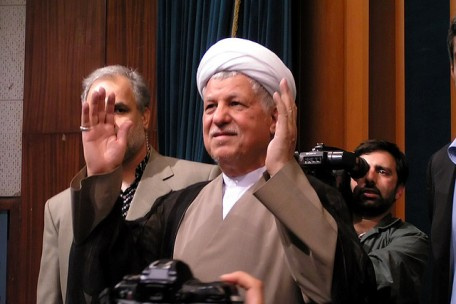A Meaningful Appointment

The wait is finally over: according to the media, the new chairman of the Islamic Azad University (IAU) will soon be announced*. Appointing a new university president tends to be an ordinary event around the world; however, in Iran millions of eyes (including those of 1.3 million students, their families, a large fragment of the society as well as political activists) are fixed to see who the new chairman of IAU is going to be.
When established in 1982, the experts predicted a bright future for IAU (thanks to its outstanding board members). Not surprisingly, the predictions came true and following the ending of the eight-year Iran-Iraq War the institution started its rapid expansion: from three thousand students in 1982 to over 1.3 million students in 2012, placing it at the 3rd place globally in regards to number of students. IAU has introduced 7 to 8 million graduates to the Iranian society during this period.
The social and economic influence of IAU was such that a number of experts deemed it as one of the main contributing factors to the victory of the Reformist presidential candidate Mohammad Khatami. Not only the majority of the IAU students and its graduates were amongst the supports of the Reformist candidate, they also had an effect on their family and friend’s votes. The Principlists also exaggerated the IAU’s electoral role, perhaps to point the finger of blame away from their own negligence and not take the fault. Whatever the reason, after the 1997 elections, the Principlist camp commenced its efforts to take over IAU. Their strenuous efforts failed to bear fruit at that time, since the balance tipped in favor of Hashemi Rafsanjai, whose protégés in Kargozaran Party were powerful members of the Reformist front. Hashemi’s personal political weight also turned the university into an impenetrable barrier for the Principlists.
These conditions persisted until the unexpected victory of Mahmoud Ahmadinejad in the 9th presidential election in 2005. It was during his administration that the IAU critics gained ample authority to finally materialize their long-standing desire to exert control over the managerial positions in the IAU; purging this institution of any political rivals.
The Principlists were assured that this time, they could gain the support and sympathy, even of IAU personnel. Shortcomings in the educational framework of the university, criticism over the unrestrained growth of the institution (that had also reached some of the remote parts of Iran) as well as the dissatisfaction of a significant portion of the students with the costly tuition that did not correspond to the level of education provided.
As the situation unfolded, it became clear that despite the electoral victory of the Principlists and the Reformists’ minimized role in the legislative apparatus, is was not an easy task to take control of the IAU. This was due to some legal barriers as well as Mr. Hashemi’s resistance, who was still influential in some key positions. Furthermore, the Principlists did not manage to form a solid body of supporters within the IAU.
As a counter-strategy, the Principlist government stirred towards strengthening and supporting the public University of Payame Noor in order to create a strong running competitor for IAU as well as decreasing its scientific, cultural, social and political influence. The decision served well for the society, yet there was still a big gap between the ranks of the two universities. The Principlist government eventually gave up this battle.
The events following the 10th presidential election in 2009 however further sidelined the Reformists -the Kargozaran in particular- and provided the Principlists with the opportunity to respond harshly to any criticisms against the government. Thanks to the political atmosphere at the time, the Principlists decided to finally settle the IAU issue once and for all and breakdown the resistance that was ongoing for three decades. The basic premise was that the opponent is in its weakest political position. By reinforcing pressure and implementing purposeful tactics they could finally realize the long lost dream of taking control over one of the most prestigious academic institutions, not regarding the [mouthwatering] assets of the university estimated to be worth –220-400 million USD and 400 active branches across the country.
By gaining control over IAU, the Principlists killed two birds with one stone. Firstly, they deprived the Reformists of a competitive elective tool. Secondly, the additional macro-financial, cultural and political resources further empowered the Principlists, ensuring extended political superiority.
After the recent fraud scandals [2.6 billion dollar scam] however, a gap emerged amongst some Principlist members, pushing IAU down their priority list. Simultaneously, Hashemi’s successful political strategy and his all-out use of his limited resources ensured his success in becoming the chairman of the IAU; despite the fact that a significant number of voting members were supporters of the current government. If one disregards rumors that Hashemi’s presidency over the Board of Trustees is the result of a backstage tradeoff in return for a pro-government figure’s presidency over the university, it is possible that once again, another pro-Rafsanjani candidate comes to power. In a few hours, a meaningful appointment will take place which implies much about the political future of Hashemi Rafsanjani.

